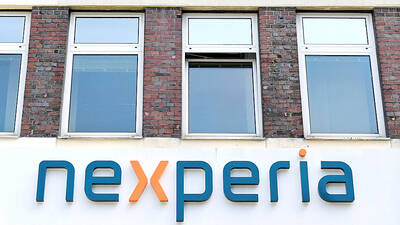Marking a moment of rare bipartisan cooperation in divided Washington, US President Barack Obama on Thursday signed into law a measure meant to create jobs by helping small firms raise capital.
Obama was joined by one of his chief antagonists in the US Congress, Republican House of Representatives Majority Leader Eric Cantor and other lawmakers, to sign the Jumpstart Our Business Startups (JOBS) Act at the White House.
“This bill represents exactly the kind of bipartisan action we should be taking in Washington to help our economy,” Obama said at a bill signing ceremony in the White House Rose Garden.
“Our economy has begun to turn a corner, but we’ve still got a long way to go,” he said. “We’ve still got a lot of Americans out there who are looking for a job or looking for a job that pays better than the one that they’ve got.”
Cantor said the signing of the law was a “significant step” and added: “We can’t stop here. Republicans and Democrats need to continue working together to produce results for our nation’s small business owners and entrepreneurs.”
However, cooperation between the two parties on job creating measures in an election year has been fleeting, with the two sides deeply split on the best economic policies to create growth.
Obama’s political fortunes, as he seeks re-election, have been boosted in recent weeks by growing momentum in the economy and jobs growth, which has taken the unemployment rate down to 8.3 percent.
The latest Labor Department figures on the unemployment rate were due in yesterday.
The Silicon Valley-backed JOBS Act, was amended to include extra investor protections in crowd-funding, the increasingly common practice of using the Internet to gather a number of capital investors for a project.
With unemployment and the sluggish recovery key issues in his re-election bid, Obama earlier this year pushed for measures to aid small businesses and startup companies that create most of the new jobs in the US economy.
A provision of the act would allow small enterprises to more easily go public if they wish, by stripping out certain accounting restrictions for newly public companies.
Such “emerging growth companies” would enjoy relaxed rules under the US Securities and Exchange Commission, and while this part of the bill can be seen as a reduction of transparency, it will make running a newly public company less expensive.

Jensen Huang (黃仁勳), founder and CEO of US-based artificial intelligence chip designer Nvidia Corp and Taiwan Semiconductor Manufacturing Co (TSMC, 台積電) on Friday celebrated the first Nvidia Blackwell wafer produced on US soil. Huang visited TSMC’s advanced wafer fab in the US state of Arizona and joined the Taiwanese chipmaker’s executives to witness the efforts to “build the infrastructure that powers the world’s AI factories, right here in America,” Nvidia said in a statement. At the event, Huang joined Y.L. Wang (王英郎), vice president of operations at TSMC, in signing their names on the Blackwell wafer to

AI BOOST: Although Taiwan’s reliance on Chinese rare earth elements is limited, it could face indirect impacts from supply issues and price volatility, an economist said DBS Bank Ltd (星展銀行) has sharply raised its forecast for Taiwan’s economic growth this year to 5.6 percent, citing stronger-than-expected exports and investment linked to artificial intelligence (AI), as it said that the current momentum could peak soon. The acceleration of the global AI race has fueled a surge in Taiwan’s AI-related capital spending and exports of information and communications technology (ICT) products, which have been key drivers of growth this year. “We have revised our GDP forecast for Taiwan upward to 5.6 percent from 4 percent, an upgrade that mainly reflects stronger-than-expected AI-related exports and investment in the third

RARE EARTHS: The call between the US Treasury Secretary and his Chinese counterpart came as Washington sought to rally G7 partners in response to China’s export controls China and the US on Saturday agreed to conduct another round of trade negotiations in the coming week, as the world’s two biggest economies seek to avoid another damaging tit-for-tat tariff battle. Beijing last week announced sweeping controls on the critical rare earths industry, prompting US President Donald Trump to threaten 100 percent tariffs on imports from China in retaliation. Trump had also threatened to cancel his expected meeting with Chinese President Xi Jinping (習近平) in South Korea later this month on the sidelines of the APEC summit. In the latest indication of efforts to resolve their dispute, Chinese state media reported that

CHINESE EXPORT CURBS: A dispute between China and the Netherlands could halt chip supply, affecting vehicle production, US and European auto associations said Groups representing major automakers late on Thursday warned that a chip disruption stemming from a dispute between China and the Dutch government could quickly affect US auto production. Automakers and their suppliers received notice from chipmaker Nexperia (安世半導體) last week that it could no longer guarantee delivery of its chips, the European Automobile Manufacturers Association said, adding that manufacturing could be significantly disrupted. In the US, the Alliance for Automotive Innovation, which represents General Motors, Toyota, Ford, Volkswagen, Hyundai and nearly all other major automakers, urged a quick resolution. “If the shipment of automotive chips doesn’t resume — quickly — it’s going to